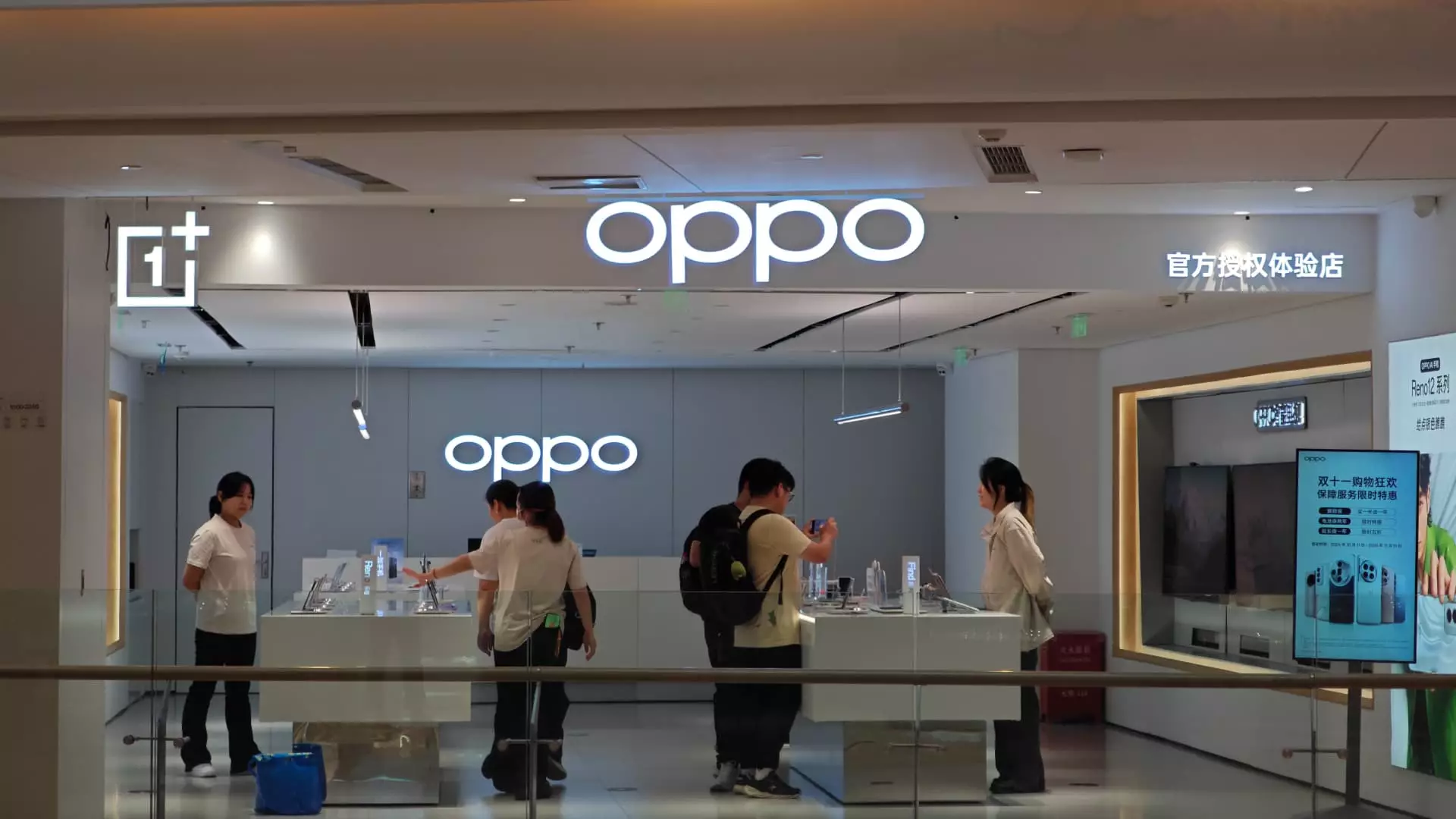Oppo, the prominent Chinese smartphone manufacturer, is positioning itself at the forefront of the artificial intelligence (AI) revolution. With weekly discussions involving senior management from tech giants Google and Microsoft, Oppo is keenly exploring AI enhancements in preparation for its flagship smartphone launch across international markets. This strategic partnership with industry leaders underscores a significant trend in the tech world: the relentless drive to harness generative AI to create applications that could streamline and enrich user experiences.
The rise of generative AI, a sophisticated technology that enables machines to generate human-like text and responses, has sparked a frenzy among global companies, from Apple to Honeywell. Billy Zhang, president of Oppo’s overseas market, articulated the company’s proactive approach, stating that Google is not only interested in collaborative improvement but also in addressing customer pain points to formulate advanced solutions. Such dialogues are critical as they pave the way for innovations tailored to meet evolving consumer demands.
In its quest for market dominance, Oppo is specifically expanding its footprint in Europe, even though the company has yet to strategize a launch in the United States. According to reports, a significant 60% of Oppo’s revenue comes from overseas, particularly from Southeast Asia and European markets. The competitive landscape is fierce, as Oppo recently emerged as the fourth-largest smartphone producer globally, accounting for 9% of the total shipments, trailing behind titans Samsung and Apple.
What sets Oppo apart is its keen understanding of consumer needs in international markets. Zhang’s comments emphasize that the integration of AI is not merely a technical upgrade but a holistic approach to enhancing customer satisfaction. This insight allows Oppo to tailor its innovative offerings to adequately cater to diverse user requirements across different regions.
Oppo’s futuristic roadmap includes equipping its upcoming flagship device with AI writing, recording summary features from Google’s Gemini, and content generation capabilities powered by Microsoft’s OpenAI products, like ChatGPT. However, the specifics regarding the current utilization of AI in existing Oppo models remain vague. Nonetheless, the company has made ambitious claims: it aims to integrate generative AI features into 50 million devices by the year’s end.
The technologies being incorporated into Oppo’s smartphones are part of a broader trend towards enhancing user engagement and functionality. Innovations like AI-based photo enhancements, which allow for features such as removing unwanted reflections, signal a leap towards a more interactive experience for users. This commitment also extends to innovations beyond smartphones, as Oppo establishes an AI Center and has reportedly been developing proprietary AI models since 2020.
Oppo’s ambition does not end with consumer products; it also aims to revolutionize its manufacturing processes through automation. With a focus on efficiency, the company has replaced a portion of its workforce with machines in its factories, specifically in Dongguan. This strategic decision allows the company to redirect human resources toward more complex tasks, ultimately enhancing productivity and product refinement.
These advances have not only helped Oppo streamline its production processes but have also resulted in significant cost reductions—reportedly nearly 40% over three years. Danny Du, director of manufacturing management at Oppo, noted that improved technology integration has drastically reduced production timelines, enhancing the company’s agility in meeting market demands.
This operational refinement speaks volumes about how generative AI can reshape industries and streamline processes by removing inefficiencies. As seen with other players in the industrial sector, such as Honeywell collaborating with Google for AI assistant technologies in factories, Oppo is keen to adopt AI tools that promote a seamless blend of human and machine collaboration.
The trajectory of innovation at Oppo reflects a broader industry consensus: AI is poised to be a cornerstone of technological evolution in the coming years. According to projections from Counterpoint Research, shipments of generative AI smartphones are likely to escalate dramatically, indicating a burgeoning market that presents both opportunities and challenges for manufacturers.
With companies like Apple and Honor also racing to incorporate AI capabilities into their offerings, the global landscape is rapidly becoming more competitive. As Oppo continues to foster partnerships and invest vigorously in AI development, the implications for both the tech industry and consumer technologies are immense.
Oppo’s strategic focus on artificial intelligence signifies more than just a trend; it embodies a shift towards a future where technology intricately understands and anticipates user needs. As the smartphone scene evolves, Oppo’s proactive stance may well set a benchmark for others to follow, ushering in an era defined by enhanced user engagement and operational excellence.


Leave a Reply